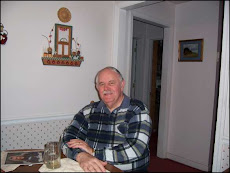This question has intrigued the writers and theologians of the last 30 years. It has come somewhat to the forefront again, largely because of President Obama's recent statement while in Cairo, Egypt, that America was "One of the largest Muslim nations". Of course, at this time, that is only true in a limited way. Muslims are permitted under our Constitution to practice their faith, as is practically every religion in the world. But that does not answer the core question. Is America a Christian nation? Perhaps the question should be answered in this way: our forefathers certainly intended for the Christian faith to play a prominent role in this nation. It did play a prominent role in the first 200 years after the discovery of America.
Recently viewing a DVD titled America's Godly Heritage by David Barton of Wall Builders, Aledo, Texas re-focused my attention on this subject. Some have the mistaken idea that because of the First Amendment to the U.S. Constitution says "Congress shall make no law respecting an establishment of religion, or prohibiting the free exercise thereof", that this means the USA was to be "neutral" regarding God and the Christian faith. Not so, for even a Supreme Court decision of 1892 went so far as to say "No purpose of action against religion can be imputed to any legislation, state or national, because this is a religious people...This is a Christian nation." In the earliest days of the republic, John Jay, one of the three men most responsible for the writing of the Constitution, and the first Supreme Court Chief Justice said "Providence has given to our people the choice of their rulers, and it is their duty-as well as privilege and interest- of our Christian nation to select and prefer Christians for their rulers."
What of "separation of church and state? This not found in the constitution or any other official document of our early government. The phrase actually came from Thomas Jefferson in a private letter, and has been greatly distorted in its meaning. A number of our early leaders acknowledged God' s guiding the affairs of this world; including John Adams, George Washington, Benjamin Franklin, an John Quincy Adams.
Sum it up-- is the USA a Christian nation? Perhaps not anymore, since we are definitely now at what the late Francis Schaeffer called the "post Christian era".
But look at some of the example of Christian influence in our nation. The influence was there, and still is, in a weaker way. So, if America is not a Christian nation, it was certainly meant to be so by the men who founded her, all the way back to the Mayflower, and some say to Christopher Columbus. May God make His mercy and His Holy Name known again in our land! May He call us to repentance in these desperate and wicked days!
(Along these lines here are some writings of other brethren).
Psalm 16:6 – “Yea, I have a goodly heritage.” Hebrews
college seal the word, Veritas, Latin for “divine truth.” Its motto was, “For Christ and the Church.” Its founders believed, “All knowledge without Christ was vain.” [In honor of
Thomas Jefferson, 1743-1826, our Third President: “I tremble for my country when I reflect that God is just; that His justice cannot sleep forever” (1781).
Ronald Reagan, 1911-2004, our Fortieth President: “If we ever forget that we are ‘One nation under God,’ then we will be a nation gone under” (1984).
Francis Scott Key, 1779-1843, lawyer and poet; author of “The Star Spangled Banner” (1814), which became the National Anthem in 1931. Listen to the fourth verse:
O! Thus be it ever when free men shall stand
Between their loved home and the war’s desolation;
Blest with victory and peace, may the Heaven-rescued land
Praise the Power that hath made and preserved us a nation!
Then conquer we must, when our cause it is just;
And this be our motto, “In God is our trust.”
And the star spangled banner in triumph shall wave
O’er the land of the free and the home of the brave.
And in 1817 Key wrote:
Lord, with glowing heart I’d praise thee,
For the bliss thy love bestows,
For the pardoning grace that saves me,
And the peace that from it flows.
From CHARLES WAYNE ROSSON:
NATHAN HALE, AMERICAN PATRIOT
Remember the last words of a Great American Patriot before being executed by the British in 1776 at the age of 21 "I only regret that I have but one life to give for my country"
PATRICK HENRY: speech to the Virginia Convention,
“There is a just God who presides over the destinies of nations, and who will raise up friends to fight our battles for us. The battle, sir, is not to the strong alone; it is to the vigilant, the active, the brave…. It is vain, sir, to extenuate the matter. Gentlemen may cry, peace, peace—but there is no peace. The war is actually begun! The next gale that sweeps from the north will bring to our ears the clash of resounding arms! Our brethren are already in the field! Why stand we here idle? What is it that gentlemen wish? What would they have? Is life so dear, or peace so sweet, as to be purchased at the price of chains and slavery? Forbid it, Almighty God!—I know not what course others may take; but as for me, give me liberty, or give me death!”


No comments:
Post a Comment